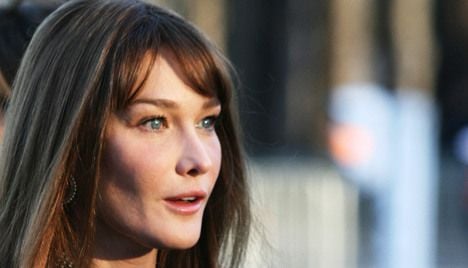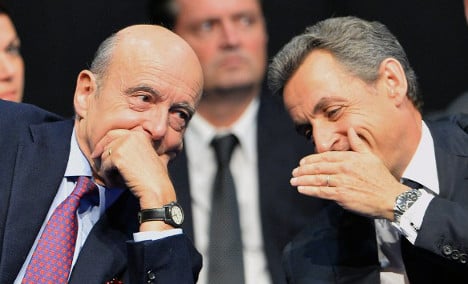“I will never show a photo of this child,” she said. “I think that being exposed to public life is a choice for an adult.”
The statement, made on the weekly news programme “Sept à Huit”, was part of an interview recorded with the first lady on Thursday in the Elysée Palace.
She claimed not to know the child’s gender, despite reports in France that she is expecting a boy. “The press knows more than me,” she laughed.
Bruni-Sarkozy also explained why it took her so long to announce the pregnancy officially, saying it was “perhaps the reflex of a mother hen” as she plans to “do everything to protect this child.”
“You don’t have a child to play to the gallery, and this role as wife of the head of state has put me even more on the defensive,” she explained. “I understand the media interest and I don’t see any inconvenience in it for me or my husband, but when it concerns the children it is impossible [to accept].”
The baby, expected in less than two months, will be the second child for Bruni-Sarkozy who already has an 11-year-old son, Aurélien, from a previous relationship. She admitted that she regretted him being photographed when she and the president were on holiday together in Jordan in 2008.
The child’s arrival comes at a busy time for her husband who is currently occupied with a range of issues. These include Libya and the ongoing eurozone crisis, as well as a series of political scandals in France including campaign finance and accusations that a journalist’s phone records were intercepted.
She was asked whether she was worried she might be left alone with the baby given her husband’s busy schedule, particularly with an electoral campaign on the horizon.
“I haven’t really thought about it,” she said. “But no, he already manages to be close to his grandchildren, his family and the family we have together.”
Perhaps remembering that the president has not yet officially announced he will stand for re-election, she added “the electoral campaign has not yet started and I don’t know if he will stand.” However, if he does stand “I will take part if he needs me.”
Asked more precisely about the birth itself and whether her husband would be there, she said simply, “I hope so.”



 Please whitelist us to continue reading.
Please whitelist us to continue reading.
Member comments